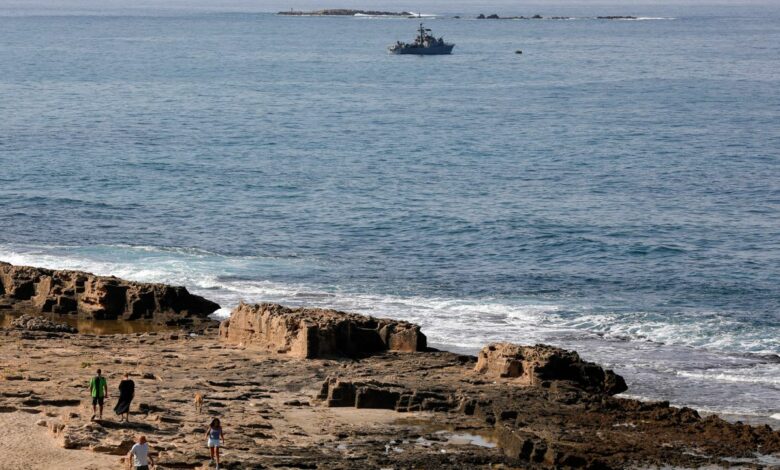
CNN – Israel and Lebanon have reached a historic agreement, leaders on each side said separately on Tuesday, settling a years-long maritime border dispute involving major oil and gas fields in the Mediterranean.
The United States has been trying to broker a deal between the neighboring countries over the 860-square-kilometer (332-square-mile) area of the sea that has been under dispute for years.
It includes the Karish oil and gas field and a region known as the Qanaa prospect, which are expected to fall into Israeli and Lebanese waters respectively under the deal. Israel has said it would begin extracting oil and gas from Karish and exporting it to Europe imminently.
“The final version of the offer is satisfactory to Lebanon and meets its demands and preserved Lebanon’s rights of this natural wealth,” Lebanon’s President Michel Aoun said in a statement hours after receiving Israel’s final offer through US mediator Amos Hochstein.
Aoun said he hopes the agreement, which is yet to be signed, will be announced “as soon as possible.”
Israeli Prime Minister Yair Lapid said: “This is an historic achievement that will strengthen Israel’s security, inject billions into Israel’s economy, and ensure the stability of our northern border.”
The draft agreement meets all the security and economic principles laid out by Israel, Lapid said.
The Israeli prime minister will convene the security cabinet on Wednesday followed by a special meeting of the government, he said.
Lebanese officials have said the deal does not mean any “treaty” will be signed with Israel and this agreement is not a step toward normalization of relations between the two countries, which are technically at war.
Earlier Tuesday, Lebanese negotiator and deputy parliament speaker Elias Bou Saab told CNN that “Lebanon felt that [the deal] takes into consideration all of Lebanon’s requirements and we believe the other side should feel the same.”
Meanwhile, Israeli chief negotiator Eyal Hulata said: “All our demands were met, the changes that we asked for were corrected. We protected Israel’s security interests and are on our way to an historic agreement.”
On Tuesday, Lebanese Energy Minister Walid Fayyad also said the French energy company Total, which owns the contract to explore Lebanese waters, would start working on the Qanaa prospect “immediately.”
Talks gained momentum after London-based oil and gas exploration company Energean arrived in June to begin development of the Karish field on Israel’s behalf. Although the Energean ship is well south of the disputed area, part of the field is in an area Lebanon had claimed.
Hezbollah, the powerful Iran-backed Lebanese Shiite milita, had threatened Energean’s gas rig if they started producing gas before a deal had been struck.
On Tuesday, Hezbollah declined to comment when contacted by CNN, but the Iran-backed armed group has previously said it would abide by any agreement signed by the Lebanese government.
The historic agreement does not affect land borders, but it is likely to ease security and economic tensions for both nations.
Lebanon’s caretaker Prime Minister Najib Mikati said on Thursday that an agreement “will circumvent us from a definite war in the region.”




